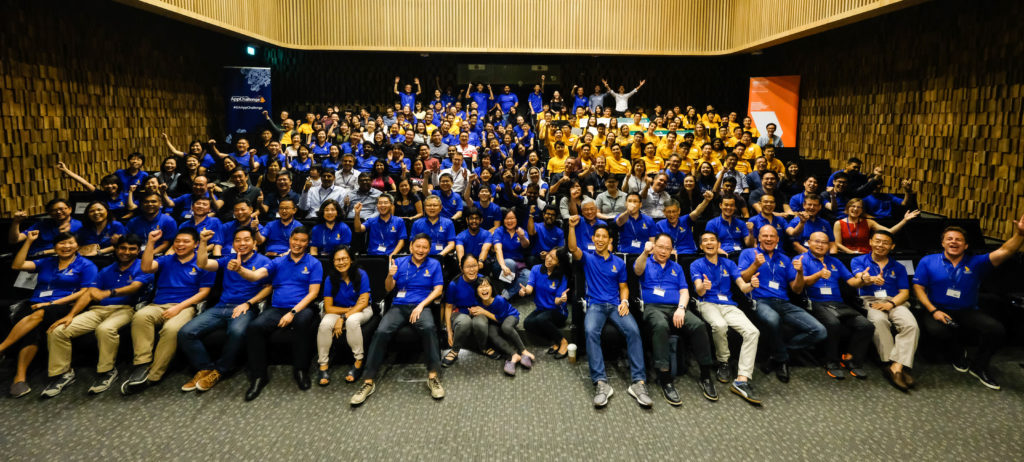On October 27, a team of GIX Cohort 1 students, including Zoe Zou, Xu Yan, and Chengxi Xia, claimed first prize in the 2018 Singapore Airlines AppChallenge. They won a $5,000 SGD cash reward and a roundtrip flight from the United States to their destination of choice.
For the fourth year in a row, the AppChallenge is a competition developed by Singapore Airlines and The National University of Singapore to showcase the most innovative solutions to Singapore Airlines’ key business challenges.
This year, the competition attracted 1,500 team applications from over 70 countries worldwide. Competing teams could choose to tackle one of five problem areas in their submissions, including optimizing mobile app engagement, improving the offloaded passenger compensation process, tracking inventory usage, and more.
The top 12 finalist teams were flown to Singapore to pitch their solutions to a panel of judges.
The winning solution by GIX students automated the inventory management process
The first-place solution pitched by GIX students combined Radio Frequency Identification (RFID) tags with weight sensor technology to minimize the amount of cost, time, and labor that goes into the current inventory management process.
By applying this new solution, which utilizes two-layer sensor fusion technology, Singapore Airlines can determine and track the quantity and type of dishes and silverware through an automated system, rather than relying on manual counting methods.

GIX students share their experiences in the AppChallenge
All three GIX students who won the AppChallenge shared remarks about the benefits of their experience, and what they got most out of participating.
“It was really great to receive mentorship and help from the organization to better understand the scope of the problem we were solving,” Zou says. “They also provided us with mentors for pitching and it was really helpful to do a dry run in front of them. The feedback was great! They gave me super constructive criticism and advice, so I stripped a lot off my presentation.”
“They provided a lot of resources after the competition to help us further the projects,” Xia says. “They also connected us with venture capitalists and other investors that might be interested in our ideas.”
Yan, the third GIX student on the winning team, was particularly impressed by many of the solutions proposed by other students and commented on how closely their projects aligned with many of the GIX learning outcomes.
“The other participants had really professional presentations, especially the ones from the National University of Singapore,” Yan says. “Everything they presented in their projects was similar to what GIX is teaching us. I learned a lot from them. It also made me feel more confident about what I am being taught at GIX. It’s definitely relevant to what’s going on in the world right now.”

Interested in learning about more GIX student accomplishments?
Visit the GIX outcomes page to read about other innovative solutions designed and developed by Cohort 1 GIX students, as well as key GIX milestones.
About GIX Graduate Degrees
GIX offers two interdisciplinary graduate degrees; the 15-month Master of Science in Technology Innovation (MSTI) through the University of Washington and the 21-month Dual Degree which combines the MSTI with the Master of Engineering in Data Science and Information Technology (MEDSIT) through China’s Tsinghua University. Pioneering a project-based learning model, GIX graduate degrees integrate technology development, design thinking, and entrepreneurship to immerse students in the fast-moving, hands-on culture of rapid prototyping, critique, and iteration.

